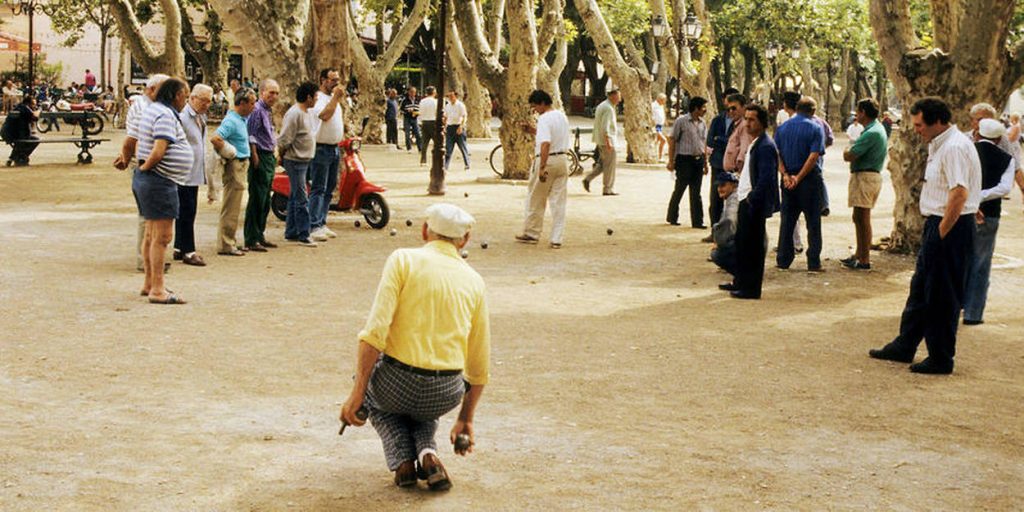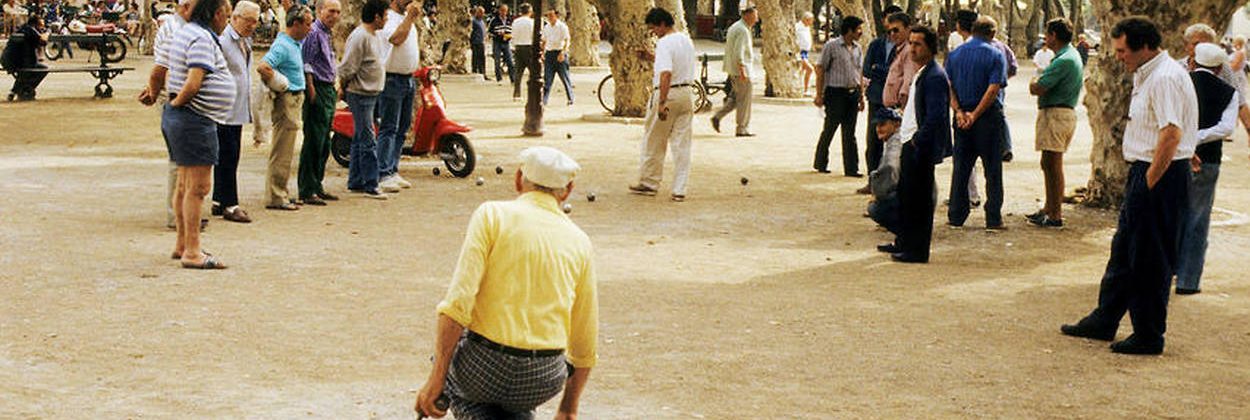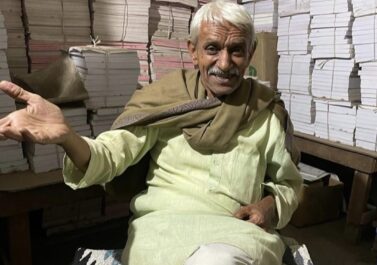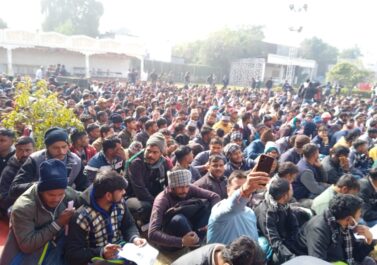
Introduction from Angry Workers
We translated this article from the communist magazine ’Supernova’, which is based in France. The magazine refers a lot to Lenin and the need for militants to develop a clearer understanding of the differences between economic and political struggle, between masses and vanguard, between legal and illegal work. While some of the more political texts remain pretty abstract on the questions of actual ‘strategy’ or ‘the role of the vanguard’, the following interviews demonstrate that the comrades around Supernova at least try to base their debate on real experiences within the militant segment of the class.
——
We decided to interview militants from four groups that are organising in Marseille. Although they are active around different sectors of work, we can see things they have in common, from the social subject they represent to the ways that they organise. One of the most striking commonalities is that the people involved in these groups are young (on average between 25 and 35). They bring a different dynamic than their older counterparts, who form the basis of traditional union structures, being a generation that has only ever seen a continuous fall in living standards, wages and working conditions. Although they have on average a high level of education, they represent a stratum of society that is most affected by the de-skilling of their work. It is perceived as a rigged game, where despite making an equal or greater effort (e.g. by obtaining formal qualifications or engaging in internships), wages actually decrease, workloads increase, working conditions worsen and professional status deteriorates. The symbolism of the social ladder is replaced by that of a social vacuum.
The interviews give us a snapshot of groups that are the tangible representation of a vast invisible informal network of grassroots militants and their concrete daily efforts: their struggles, their sacrifices, their challenges, their mistakes, their victories and their solidarity, which form the nervous system of our class. It would have been unimaginable fifty years ago that cracks would emerge in France, one of the centres of Western imperialism. Yet we find ourselves in a climate marked by the ‘end of plenty’, where confidence in the social guarantees of capitalism is waning. These groups reflect a broader impulse to organise, motivated by the fact that breathing space in life and at work is shrinking. Another commonality among these groups is that each, in its own way, has chosen to organise as an autonomous group: they exist in relation to the unions, but separate from them. Their size, informal structures, and focus on specific goals allow them to be nimble and respond quickly to current issues without having to negotiate slow and cumbersome procedures. Frequently, the rigid nature of traditional working class organisations in the face of new class dynamics has also resulted in the growth of such groups.
But while this specific form of struggle has many advantages, it runs up against the common limitations faced by unions: being limited to certain sectors or professions, and localism. Economic struggle is vital to the defence of our class. Whether by autonomous groups or unions, the struggle takes its shape in its specificity (for example, a certain sector of work or a certain locality). This specificity has its organisational advantages: it produces a kind of homogeneity of the group which facilitates decision-making and internal coherence because it is sheltered from a good part of the contradictions which cross our society. However on the economic level, one can only plan the struggle for survival. This continuous struggle, this arm wrestling between workers and bosses, is a game of gaining or losing ground, inch by inch, while our position as wage slaves remains unchanged. Only in the political dimension can we face these contradictions that run through society, and devise not only a survival plan, but also an exit strategy and a plan of rupture.
———
Social Brûle
Social Brûle has been organising sporadically in the social work sector for 5 years, with a base of 10-35 members and a widernetwork of over 2000 people.
- Tell us a bit about the history of Social Brûle.
Well, I don’t know if I know it best. It’s because Social Brûle was born 5 years ago, and I arrived a year ago. It’s a group of social workers that emerged to fight against the commodification of social services. The dream at one time was to gather all the people who defend the social provisions and organisations of social work. When I joined we were two weeks away from the announcement of a national demonstration on social work. We met with two old members of Social Brûle and decided to recreate the collective because there was no general call from the unions to mobilise the whole sector. We thought that the collective was the fastest and most efficient way to mobilise for the demonstration, which we did, and it worked really well. It is a very local organisation, but there is a national coordination with whom we are in connection, and that meets every 6 months.
- What are the main difficulties that workers in this sector face in their work?
The issue [of working conditions and] social resources is clear. We could do a better job with others if we had better resources, and better management as well. We currently fight against fee-for-service in social work and, attached to this, the large amount of paperwork compared to before. After all, for me, it’s still precarious people who take care of precarious people. For example, my colleague is a survivor of domestic violence and hers is not an exceptional case. It’s very concrete things that have mobilised people a lot in the last few years. There is, finally, a big movement of social workers lof a kind we haven’t seen in 20 years! It developed in reaction to an attempt by the state to merge all the [social] collective contracts, largely at the expense of our rights. This attempt would have tilted the balance of power to our disadvantage. What’s being advocated is a basic wage for everyone that would be the same, a basic wage well below the minimum wage – you have to negotiate individual extra payments according to your skills levels to reach the minimum wage, for example a couple of hundred euros more, because you had such and such a training. Even the recognition of seniority is called into question in this model. This new contract does not recognise previously obtained and required qualifications anymore. They justify all this because there is a lack of social workers and they want to make it easier to recruit unskilled people. This is a big problem. We can’t recruit, they say that there are 30% of permanently vacant positions. And this obviously causes huge dysfunctions and disproportionate workloads for the remaining colleagues. Their argument is that it makes it easier to change jobs. Also, last year we had access to a bonus that was given to the medical sector during the Covid pandemic… [recently] it was extended to the social sector, so there’s a lot of buzz about that.
- Is there some kind of blackmail used, saying that you have to work harder, otherwise vulnerable people will suffer?
Yes, there is a lot of that. It makes people work overtime, it increases the number of unpaid volunteers. A whole segment of social work relies on unpaid work. In my case, if I don’t open the local surgery, even though it’s outside of my official working hours, I know that there is no one else to open and, for example, a person with a head injury might have to stay out on the street. So it’s certainly a bit of a fait accompli.
- Tell me about your struggles?
At the beginning we primarily followed a movement that was being born. There was a strike date every month. So at the beginning, our work was to announce dates, places and to spread the word. We tried to organise more actions, in particular to go and flyer other workplaces, to visit the various [neighbourhood] associations during work time, to march on management in a collective way. I took part in an action, it was really nice. The workers there had photocopied our leaflet when we rann out. Or when an action results in management not being present, which creates a bit of chaos, but both the public and the workers are actually very happy and you just have the managers freaking out. We gather information. We have tried, in view of these new laws – the merger in particular – to engage in research work where we have analysed the proposed changes, to be able to inform colleagues about what was going to happen.
- Who are your members?
Almost all the sectors are represented. People who work in child protection, street educators, people who work in harm reduction, disability, social work in general. There’s a little bit of everything. But there are big differences [in salary], and big differences in peoples’ level of formal qualification. So there are educators with 3 years of higher education up to life assistants who don’t have a diploma. The wages range from the minimum wage to, I don’t know, the salary of an educator at the end of his or her career. It’s still less than 2,000 euros, anyway. We organise more with the middle class of social workers, since we have very few people on the most precarious contracts. I have the impression that people who are really up for mobilising are people who have a fairly high level of education within social work, for example a three-year university degree.
- Do you yourself work in the public or private sector?
In both, actually. When we talk about the private sector, they are associations, but they are almost 100% subsidised by the state. So in fact, things overlap.
- Why did you decide to be outside the union structure?
The unions were not present within the social sector. Nobody was moving. There were mechanisms specific to the trade union organisations that made them completely immobile, so there was a need to organise independently. Now unions are entering the sector, especially the CGT, but also the CNT. They are integrated into the usual structures, with their own mechanisms. But our collective is also about the critique of the commodification of the social in a more global way, not justabout working conditions. We always talk about the fact that we should organise ourselves together with our ‘clients’, for example.
- What are the advantages and disadvantages of being outside the union structure?
I think that there is more flexibility, both in your engagement and in what you want to say. This flexibility can be good or bad, for sure. There is also the question of legality. As a collective, we can act more freely, beyond what unions can do as legal entities. On the negative side, we have less strength to defend workers in their particular situation. We have much less capacity to mobilise.
———
Collective 13 AED
The collective 13 AED gathers educational assistants (supervisors, assistant teachers) in the department of Bouches du Rhône. The members of this collective are all contractual workers in public education, some of whom also study in addition to this work. They are between 20 and 40 years old and all have at least a BAC level.
- How did the collective start?
The collective was born after the first confinement of the crisis of the COVID-19. It started from a mobilisation of the supervisors of the Victor Hugo high school. Workers involved in this then contacted various schools fromMarseille and the wider region, to amplify the mobilisation. The movement then took a national scale and gathered in a coordination of a certain number of school life in France.
- What are the main demands of the collective?
The first demand was to obtain ‘rep’ and ‘rep plus’ enhancement for the educational assistants, which is a bonus for schools facing social difficulties. Supervisors are the only ones employed in these schools who do not receive this bonus. But the demands were quickly extended to our working conditions and our status within the national education system. These conditions have been highlighted since the health crisis. Various restrictions, sometimes bordering on the absurd, have increased discontent in school life. The main demand is in relation to our status, which is only a fixed-term contract that can be renewed for up to 6 years before they have to make you permanent. We want a proper employment status. The possibility to get a permanent contract after 6 years is not sufficient, and does not really deal with the precariousness of this profession.
- What are the objectives of the collective?
First of all, the collective has allowed us to discuss our working conditions. The exchange of experiences with other school workers has brought us a more global vision of the problems of our job. But it is especially a practical tool to organise ourselves. The idea was to broaden the protest to the maximum, and for that we had to call other colleges to join us. Then, since money is the sinews of war, a strike day takes away a good part of our wages. Therefore, the goal was to establish a regional strike fund to allow the biggest number of people to take part in the strikes without being bust at the end of the month. We organised several days of strikes, demonstrations and rallies.
- Does the collective exist outside of moments of protests?
No, it was mostly active during the mobilisations. Wee had some initiatives to finance the regional strike fund, but when the movement ran out of steam the collective work stopped. We made a few attempts to reactivate it, but given that there is a big turn over in this profession, we have to start from scratch.
- What is your relationship with the unions?
Most of the active members are unionised within the CGT or Solidaire, but the collective has succeeded in bringing together at most about a hundred assistants, the vast majority of whom are not members of a union. We have had logistical help from the unions – they obtained premises for us to organise meetings, for example. But the corporatist character of the unions within public education, which is essentially composed of teachers, obliged us to meet outside of these structures, as they did not represent the reality that we lived. We were of course on good terms with these unions who supported our struggle, but there was a gap in the demands, especially concerning the status of the educational assistants..
——
Chômheureuses
The Chômheureuses [‘the happy unemployed’] meet every Monday at 9:30 am at La Dar, 127 Rue d’Aubagne. It is a small group whose members come from a variety of backgrounds, ranging from education workers and teachers to engineers and people from the cultural milieu. They are between 25 and 35 years old and most of them went to college or have a post-BAC degree.
- What are your main activities?
Well, for the time being, we meet once a week, ironically enough on Monday mornings. It is a place to share experiences with the job centre and the unemployment benefit system. We help each other if we have questions. And I think that at the beginning, the main preoccupation was the removal of guilt in relation to unemployment and the fact of being able to break a kind of social isolation and to create a group of support and sharing. Also, we did some reading on ‘what is the value of work’ or ‘what is productivism’? What are the ways to challenge them?
- Have you ever organised any demonstrations?
At the moment, the group is quite young and not everyone was up for that.
- Tell me a little bit about the history of your group and why it was formed.
So the group was born a little less than a year ago. We had a friend who deserted his job and who wanted to create a group of people who were questioning the precariousness, the subject of the desertion of all the jobs that we call ‘bullshit jobs’. And in fact, for many of us, work has been a place of non-fulfilment. The criticism of the value of work is quite present among us. We sometimes use the slogan ‘Unemployment for all!’, but in itself we are for a drastic reduction of the working time. We think that there should be a better distribution of wealth, that’s for sure. There is one person who is very active and who is very involved in the desertion among engineers.
- Can you explain a little more about this concept of ‘desertion’?
Yes, it relates to the observation that there are a lot of jobs considered to be highly qualified, or at least socially valued in terms of pay and wages, that do not serve the common good – and there are the useless jobs that David Graeber called ‘bullshit jobs’. And that’s it. If I can’t see the meaning of my work, that’s something that can be qualified as harmful for the person. There’s also the aspect that in the current balance of forces in class struggle, we weren’t necessarily in a very advantaged position. Desertion is, we’ll say, a way out of this economic world, and especially of the labor market. People are entitled to refuse to do what they were trained for, and it is a political gesture not to take certain jobs.
- What are the questions posed by unemployment today?
Unemployment, since it is considered a sanction, something socially degraded, is not seen as an enviable social situation, but it’s actually good to take time out, to take stock of your career. Many people feel guilty about being unemployed. We are at a stage of social development where unemployment is a political will, it is structural, and as a result if there is a lot of unemployment it pulls down wages. It’s a political economy logic that evolves, and that is meant to put workers as well as the unemployed in competition with each other.
- Why did you decide to be outside the union structure?
I’m not able to say too much about the position of the group in relation to that. Personally, I am not member of a union at the moment, because I do not agree with their strategies, either at the local level or at the national level,when it comes to negotiations. I took part in pension and strike demonstrations several times and I have always been astonished by the fact that we could mobilise 2 million workers on a Thursday and say that we were waiting another week to call for the next demonstration. Or take the example of the occupations during the protests against the reform of the unemployment insurance. There was a lack of democracy when it comes to internal functioning, the issue of gender divisions was neglected and alliances with groups of undocumented workers were not created. I think there was a political calculation to ignore these problems, which created a bad atmosphere for struggle in general. But when I saw Macron’s declaration that there was going to be a new reform of unemployment insurance in the autumn, I sent a message to the collective saying that I was in favour of contacting union structures. I think that we can’t be in our own world and say to ourselves that it’s great, long live unemployment! We’re among ourselves, we support each other, and at the same time we totally neglect the side of the political struggle. I think we can envisage that in the future, given the political climate, there will be actions of the Chômheureuses outside of, but in relation to, the unions.
——
Collectif Autonome BTP de Marseille
- How did the BTP [construction and civil engineering] collective start?
The collective was formed in October 2021 during a meeting of construction workers who use ropes and harnesses to do their work. We met for the first meeting at the local of Solidaire 13, since when we meet twice a month. At the beginning the idea was to exchange information on our work and to meet other people working in this sector. We quickly talked about our working conditions. There was an educational focus at each meeting (work accidents, working conditions in different countries, bad weather, racism and sexism in the work, and so on). The thing that brought us together was precariousness, and the fact that there is very little trade union presence in this sector.
- What are the objectives of the collective?
We don’t know if everyone has the same objective, but more and more common goals are emerging. The collective is important to allow workers to organise themselves, because the unions no longer respond to the needs of workers to organise, and this is not a French exception. The unions are rather in defence mode – they are intermediaries between the workers and the employers.
- Which category of workers do you represent?
There are workers fromof the building industry (rope workers, bricklayers, etc). There are no managers in the collective.
- What are the central issues that the collective covers?
Essentially working conditions, the fact that there is a lot of subcontracting, undeclared work. This splits the workers, the goal is to bring them together. To fight against precariousness and isolation. There are about 1.5 million construction workers [in France], to which we must add 30% of undeclared workers. There are 88% of men and 12% of women. The annual turnover of the sector is 156 billion euros. In the collective there are 50% of women and 50% of men, we started to reflect on this specific issue. We have noticed that it is a sector composed of many foreign workers. The question of racism is also one of the central themes of our collective. There is also the question of health and safety.
- What are the main sources of tension in your work?
There is mainly the problem of safety. Every two minutes there is an accident in the global construction sector. Many workers are responsible for their own safety. We are pushed to individualise our work, which lets the bosses off the hook. There is also the issue of wages, with many workers underpaid, or not paid at all in some cases.
- What are the activities of your collective?
We hold a meeting once a week from 6:30 pm to 8:30 pm at the Solidaire office (29 boulevard Longchamps in Marseille). We meet once a month for discussions on the functioning of the collective. We also organise various trainings on the basis of proposals (climate, gentrification, working conditions…).
- What is the composition of the collective?
We are between 20 and 30 members, of which 6 are the main activists. We are only based in Marseille, although we want to expand. We work mostly in the private sector. Most of us are temporary workers with intermittent work, who have to travel a lot to get to the different sites. Many members have entered the sector by choice and not by need. This poses a question of legitimacy to be representing it.
- What is your relationship with the unions? Why did you choose to be outside of these structures?
We are in the minority when it comes to being unionised. There is a link with the union, but for example the Sud BTP union no longer exists nationally. There are only local committees. There is also a lack of union response in this sector, particularly in relation to the precariousness of our work. How do we organise ourselves when we do not work in the same company, when we do not have the same realities? How do we break with the isolation which is structural in the construction sector? The problems linked to trade unions are not posed only in France. The union does not answer questions related to precariousness.People seek to organise themselves differently.
The unions provide logistical and material support (provision of premises, printing of leaflets, etc.) and they also provide training support for union members. They provide specific answers in terms of labor law or legal aid, and also allow us to have a network of workers. There is no dispute with the unions, and no corporatism either. We can get in touch with other collectives of precarious workers, unionised or not, without problems.



